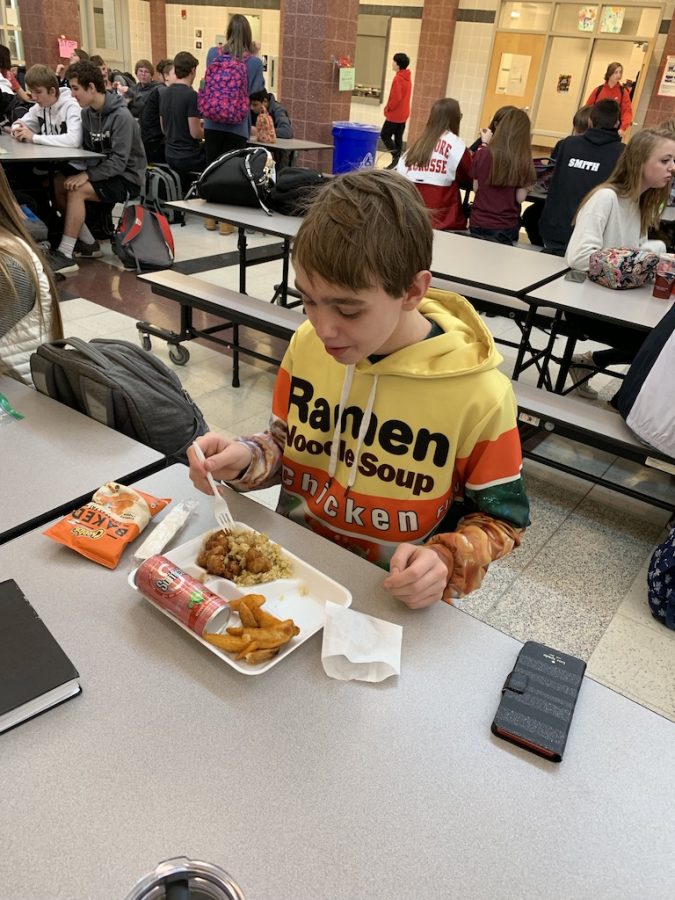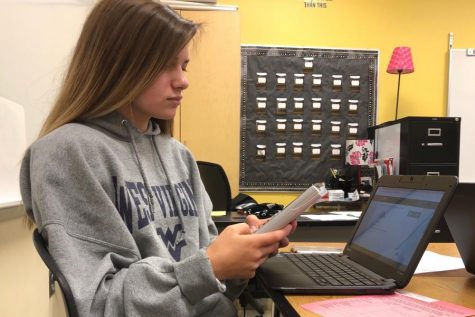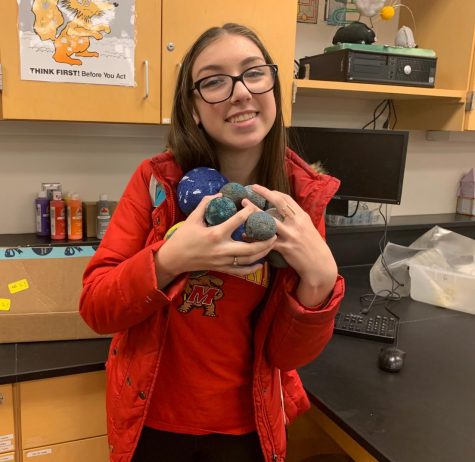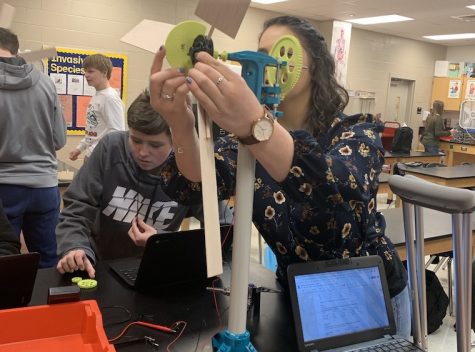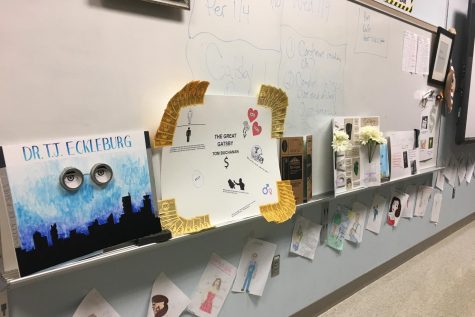Students want more locally grown fresh food
Kevin Aquino eats a cafeteria lunch.
January 8, 2019
Frederick County Public Schools has spent the past year exploring the possibility of adding more locally grown fruits and vegetables to the lunch menu. Because this is such a big decision for the school district, Steve O’Brey, food procurement coordinator at FCPS, wants to ensure that they have enough farmers to supply the great amount of food needed.
FCPS currently obtains the majority of its food from Keany Produce, which is a Maryland and Virginia based distributor. The most difficult challenge in providing fresh food in schools is accessing produce during the seasonal gaps, and buying from local growers is the best way to accomplish this.
Tyler Roman is a junior and buys his lunch at school. Roman dislikes that a lot of the food is processed and thinks that if the food was locally grown it would be fresher and would have more taste.
Roman said, “It would be nice to have some variety, and if the foods were seasonal, it all wouldn’t be the same food.”
One main problem with this is the academic calendar. It is proving to be a major barrier to convince local farmers to commit to the program.
If we had a more locally grown food, it would be much healthier and may encourage more students to eat lunch because they know that is good and good for them.
Michigan State University Extension published an article about the advantages to locally grown food. The article talked about the health benefits of eating locally grown food.“Local food has a shorter time between harvest and your table, and it is less likely that the nutrient value has decreased. Food grown in distant locations has the potential for food safety issues at harvesting, washing, shipping, and distribution.”
Additionally, growing food locally supports the local economy.
Lyndsey Toothaker is a freshman and brings her lunch to school. Toothaker prefers to take her lunch but thinks it would be a good idea to have more locally grown food in the cafeteria line.
Toothaker said, “By the time kids get to high school, they have more freedom of what they eat, and while some take on that responsibility with healthy foods, others eat even more junk.”
School food has always had a negative connotation because of the food being processed, shipped, and frozen over long distances. If FCPS chooses to get their produce from local farmers, students would be more likely to buy lunch and choose healthier habits.


